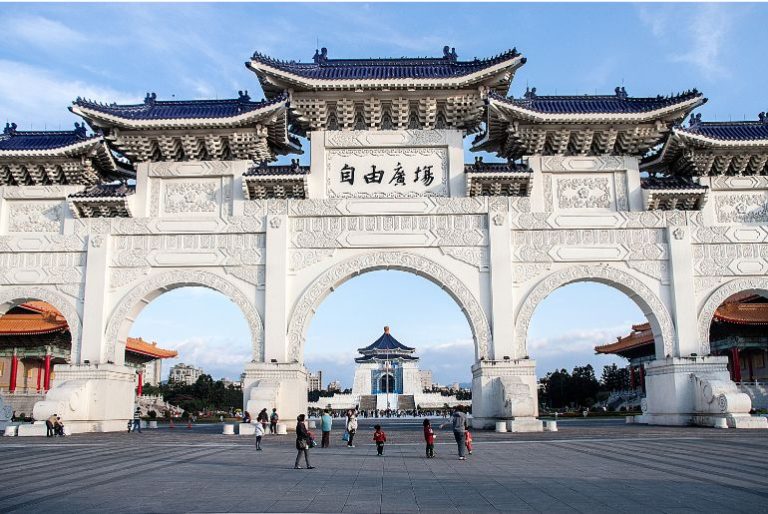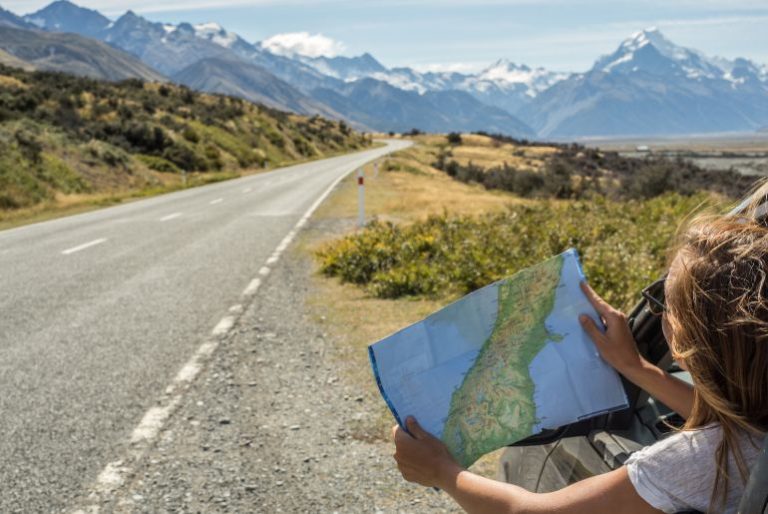Travelling with children requires a bit more planning than you may have been used to in your heady child-free days. However, with this planning in place you can definitely enjoy a bit of time away together, and make some wonderful family memories along the way.
Getting a plan together
Most young children don’t cope very well with unfamiliar places and foods, so you will need to have a plan in place for dealing with this. Try to give your kids a bit of time to ease into things. Let them have a play in their room or cot to get used to it before bedtime, schedule in some down time rather than rush from sight to sight, and be prepared to chuck it all in and leave the attraction if things turn to custard. If you are travelling with another adult and have kids of different ages, you could plan to split up occasionally so the older kids can do things that the younger ones wouldn’t want to and vice versa.
The internet can be a wonderful source to find where to stay and what to do on holiday. If you’re looking at online reviews, be aware that people are more likely to complain than to praise so take things with a grain of salt. Look for any patterns that occur in multiple people’s reviews and decide if it’s something that would bother you too.
Always have a plan B or even a plan C. You might arrive to your tropical beach paradise to find you have a week of tropical beach rains. You might be fine to curl up in bed and read a book for a week, but your kids will likely be disappointed. Children often get really excited about holidays, and sometimes the reality doesn’t live up to their expectations. Help prepare them for possible changes by playing this “what if” game: Chat about some things you are looking forward to about the holiday then ask some what if questions like “what if we want to go for a swim but the pool is closed?” or “what if our flight gets delayed and we have to wait longer at the airport?” Brainstorm some things that could your family could do in these situations to make the most of them.
Preparing yourself
One unfortunate thing about holidaying with your children is that you don’t get much of a holiday from the children! If you are the type who loves every second you spend with your children and get energised and refreshed that way, this isn’t a problem. If you like to laze in the sun reading a book or meander through museums or art galleries to refresh yourself, it’s a good idea to build some time off into your holiday.
Travelling with another family or families can be a great way of doing this. Children are often happier and easier to occupy with playmates, and the adults can take turns supervising the children so every one gets a break. Choosing who you go with is very important to make joint holidays successful. A few things to bear in mind are:
- Make sure everyone concerned gets on well. Just because your bestie has a child the same age as yours, doesn’t mean they will enjoy spending so much time together
- Give the children breaks from each other as well. Even if they are getting on fine, it is a good idea to schedule in some family time away from the other children.
Getting there and back
No matter how you are travelling, it’s a good idea to pack lots of healthy snacks that aren’t going to create much mess if dropped or spilled. Pack way more than you think you will need, and remember to keep sugar and additives as low as possible – your children will be in a confined space for a while and you don’t want to have to deal with any possible effects of unhealthy food options!
Pack a couple of changes of clothes in an easily accessible location in case of accidents or spills.
A lot of children find travelling interesting, and will be happy to look out the window and chat about what they can see for quite a while. Some toys and books for distractions are a good idea, especially at those times when you can’t stop the car or get out of your seat in the aeroplane. Give them toys that aren’t likely to be dropped or to create much of a mess. You don’t want to have to constantly fish around under your seats for a crayon that keeps rolling off the tray, nor do you want your child drawing on the jacket of the person next to them!
Plane travel
Once your child is over 2, they will need to have their own seat. This makes plane travel more expensive, but possibly more comfortable than having a small wriggly person on your lap for an extended period of time. If you are concerned with the safety of having your small child sit on their own, you can bring your carseat on board or use an approved harness. On Air New Zealand’s website they recommend a harness called the CARES harness, which attaches around the child’s seat onto the airline seat belt to create a 4 point harness with a chest clip. They also give details about what types of carseats are allowed on planes.
You may want to take a small push chair or baby carrier with you on international flights as there are often long waits or walks. Most airlines will let you take an umbrella stroller up to the gate and they will then check it in with the luggage for you.
Make friends with the people around you. People are often bored on flights and will happily play peekaboo or read your child a story to give you a little break.
See our article on long haul flights with a toddler for more plane tips.
Car travel
Once you have more than a few children, car travel becomes a much cheaper option than flying, which means most families will do at least a couple of long distance car rides. Some tips to make this more manageable are:
- Make sure you plan frequent stops for your children to have toilet breaks and let off some steam. Take note as you go of the locations of good playgrounds and clean toilets. This information will be invaluable on later trips!
- Try to travel when there is less traffic
- If your children sleep well in the car, travelling over sleep times might be an option. You could consider getting up early and transferring the kids into the car in their pyjamas to keep sleeping while you drive, or leaving in the evening and let them fall asleep on the way to your destination.
Where to stay
Hotels
Staying in a hotel can be a more luxurious option. Any mess made by the family generally gets cleaned up and they often offer baby sitting services. Bear in mind that hotel rooms can be cramped with the whole family, so you may want to consider booking connected rooms or a suite which will be more expensive. Hotels often have a small fridge and a jug, but not much else in the way of cooking facilities which may make your holiday more expensive also. You may also get a bit more noise in hotels, which might disturb noise-sensitive little ones.
Motels
Most motels have apartment-style rooms with some kitchen facilities and a living space, which can be great with kids. Some will provide breakfast, but room service will be a lot less than in a hotel.
Resorts
Staying in a resort can be a great option for families. There are usually children’s programmes to keep the kids entertained – but check the ages they cater for before you go as many don’t have crèches for under 3s. Resorts generally have packages which include all food and many activities so it can be a stress-free family holiday. There are lots of activities available to you don’t have to keep bundling the kids up in a car to take them places. Resorts can be pricey but many have heavy discounts for kids.
Self contained apartments
A self contained apartment is essentially a home away from home. There will be bedrooms, lounge, kitchen and bathroom. Often they will come with laundry facilities too. You can save money by preparing some of your own meals and there is usually plenty of space for the adults to relax while the kids sleep. Some of these apartments are in hotel-like complexes and you may get some of the benefits of those like a pool or gym.
Holiday homes or baches
These can be a cheaper option for a comfortable holiday. Like a self contained apartment, they have full cooking and living facilities, but are generally stand along houses often with some outside areas for kids to run around. You may need to clean these yourselves at the end of your stay, or pay a bit extra for cleaning services.
Bed and Breakfasts
B & Bs may not be the first option you think of when travelling with a family, but there are family-friendly ones. A farm stay is likely to please the small people and many of these operate as B & Bs. You may be accommodated in a family home or in a separate house or unit.
Camping/holiday parks.
Camping is a cheap option for families. There are usually playground facilities on site for the kids and they are often near other family attractions such as beaches. If tenting is a bit much for you, staying in cabins or campervans means you get more comfortable beds and more guarantee of staying dry if it rains.
House exchanges
After staying with friends or family, house exchanges would be the cheapest option for family holidays. You get the benefits of staying in a family home with laundry and cooking facilities and real beds with very little cost. You need to feel happy to have some one else in your own house though, and to have the kind of house a strange family would be happy to stay in, so house exchanges aren’t for everyone.
Lastly, it’s a good idea to plan a couple of days of rest once you get home. Holidays can be great fun, but you often end up feeling like you need a holiday after the long journey back! Try to give yourselves a weekend to rest recover and unpack before throwing yourselves back into your usual activities.
More useful articles and resources on travelling with kids
Are you thinking of heading overseas, try out Surviving a Long-haul Flight with Toddlers or Travelling Overseas with Newborns. You may also like Sightseeing with Kids for more great tips.
In Auckland? You should check out Three Things to do in Auckland with Toddlers. If you’re planning a roadtrip, you might also like Travel Games for the Whole Family.
Does anyone in your family suffer from motion sickness when travelling? People swear by the motion sickness bands or ginger root as alternatives to medication.
For more great articles go to our Family Travel section.





